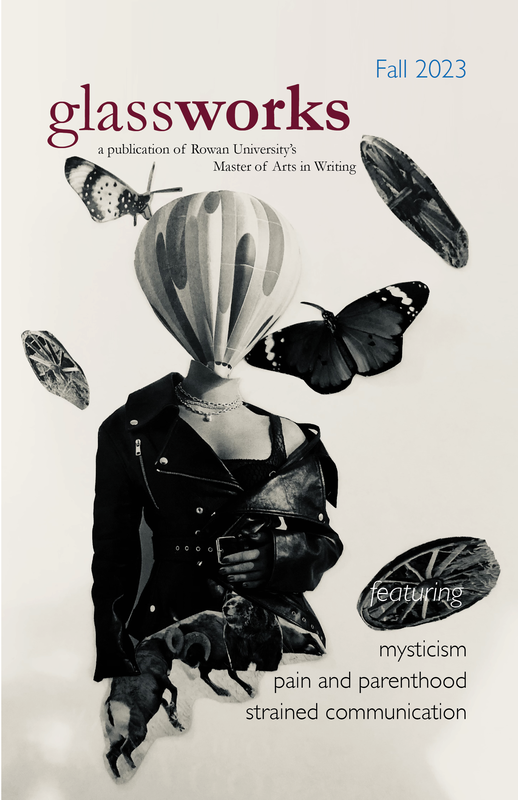lookingglass
Through the "Looking Glass," readers are invited to dig deeper into our issues as contributors share reflections on their work. Specifically, "Looking Glass" provides a sort of parlor where authors and artists reveal the genesis of their pieces, as well as provide meta-discursive insight into their textual and visual creative works. Issue 27 Reflections
Read on for reflections by select authors and artists
on the genesis and craft of their pieces in Glassworks and then read the full issue online! |
Kevin Neal
"the Monster We Made"
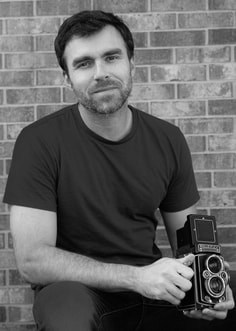
My poem, “The Monster We Made” came to me after being startled awake in the night; an image that manifests in the third stanza. The real challenge with this poem was trying to pull sadness or a quiet bitterness into the work. Artists (and parents) want to be proud of their creations. I wanted the speaker to draw us in with hopeless optimism but foreshadow the insatiable cascade of sacrifices that follow. I hope the reader senses the sacrifice and the duality that sacrifice isn’t always a choice in this allusion of the responsibility we feel to our creations.
Michelle Bracken
"All Little Hands and Feet"
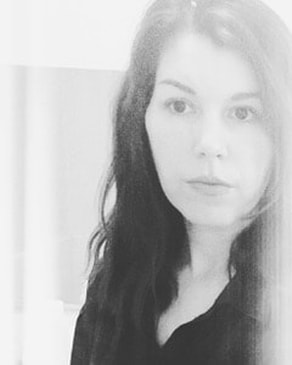
There was a time in my life where I would see orbs of light at deeply meaningful moments. It’s the age-old question, what happens to us when we die? Josephine, a young girl gone too soon, is what I imagine one of those orbs to be: someone still here with us, not just looking after the living, but because of unfinished business. Someone asked me once if I believed in ghosts. Perhaps after a great tragedy or a significant energetic event, something remains. Lost in the ether. Or here with us.
This story is part of an interlinked collection set in San Bernardino, once named a 1977 All-American City but now an area of hard knocks and tough luck. I lived and worked in San Bernardino for several years and in all my time there, I felt an urgency to shine a light on the spirited voices of its children, and what it means to grow up long before they’re grown. As a latchkey kid of a single mother, and the eldest of seven children, I know what comes with a lost childhood. This is one of my attempts to capture it on the page.
This story is part of an interlinked collection set in San Bernardino, once named a 1977 All-American City but now an area of hard knocks and tough luck. I lived and worked in San Bernardino for several years and in all my time there, I felt an urgency to shine a light on the spirited voices of its children, and what it means to grow up long before they’re grown. As a latchkey kid of a single mother, and the eldest of seven children, I know what comes with a lost childhood. This is one of my attempts to capture it on the page.
Laura Celise Lippman
“On the 18th Anniversary of my Mother's Death”
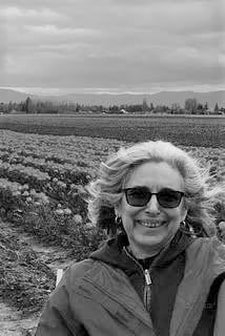
Last year in September life was so busy I missed the anniversary of my mother’s death. It was one of those years where things kept happening in the family: my daughter fell and broke her wrist, my son-in-law had a slipped disc in his neck, and my son in his family moved in with me as they remodeled their house. I had to remind myself to look around and appreciate the beauty of the changing season.
Alex Carrigan
"Mother and Father Tongue"
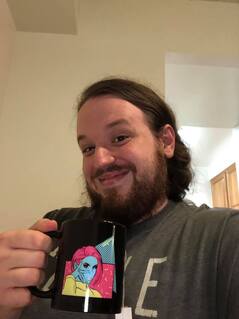
For the last two Novembers, I gave myself a writing challenge where I would reread a poetry book I owned each day of the month and try to write an ekphrastic piece as soon as I finished. Last year, one of the books I read for the challenge was Chim Sher Ting’s Bodies of Separation. I originally read the book for review and adored the author’s poems about language, isolation, identity, and more.
When I finished rereading the book and had to write something inspired by it, I wanted to think about how I could write about language and the challenges of trying to communicate with someone who I didn’t share a common tongue. Of course I thought of the Tower of Babel story, but I was also reminded of two classic Twilight Zone episodes that depicted a man and woman who don’t speak the same language have to communicate with expressions, gestures, and drawing in the dirt. I also borrowed Chim’s couplet format that she used throughout her book, something I don’t normally use, and I really enjoyed trying a new format for this subject.
When I finished rereading the book and had to write something inspired by it, I wanted to think about how I could write about language and the challenges of trying to communicate with someone who I didn’t share a common tongue. Of course I thought of the Tower of Babel story, but I was also reminded of two classic Twilight Zone episodes that depicted a man and woman who don’t speak the same language have to communicate with expressions, gestures, and drawing in the dirt. I also borrowed Chim’s couplet format that she used throughout her book, something I don’t normally use, and I really enjoyed trying a new format for this subject.

